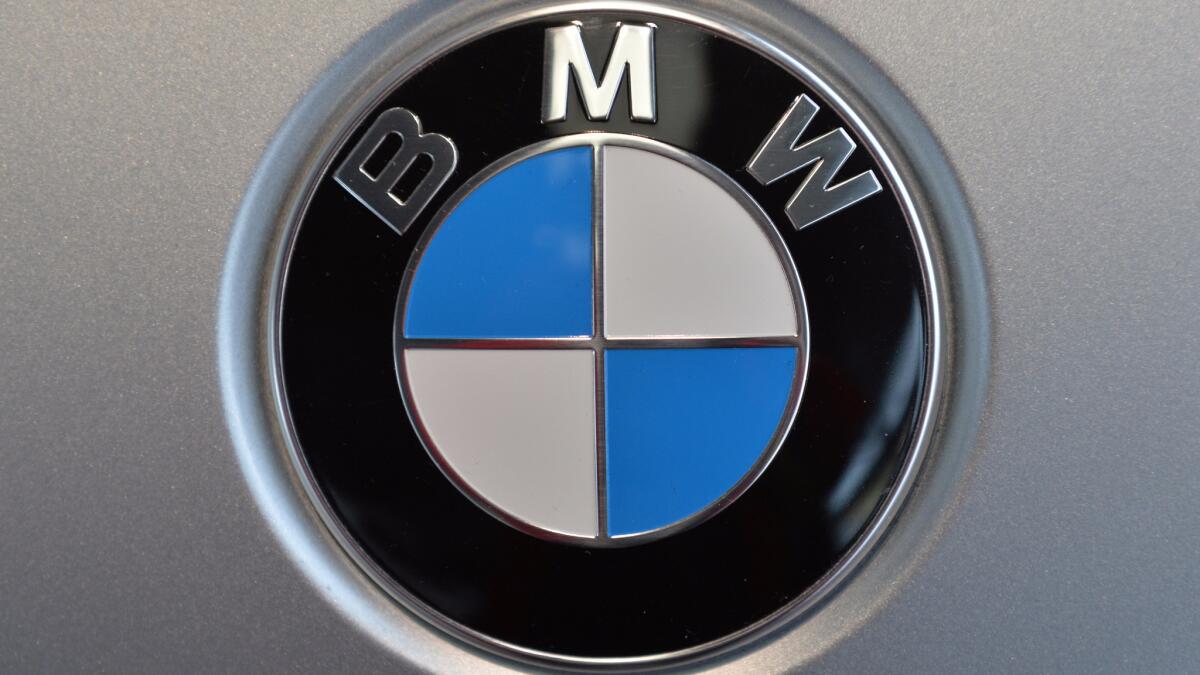In wake of fatal Tesla crash, BMW is in slow lane to roll out self-driving vehicles

- Share via
A day after the disclosure of the first death in a crash involving a self-driving vehicle, BMW on Friday announced plans to release a fleet of fully autonomous vehicles by 2021.
In a partnership with Intel and Mobileye, the German automaker said its planned iNEXT model won’t require a human in the driver’s seat.
That marks a different course toward self-driving vehicles than Tesla, which offers a self-driving “autopilot” feature to those participating in a “public beta phase” -- though drivers are supposed to stay engaged and keep their hands on the steering wheel.
That system was in use during a fatal crash in Florida in May in which a Tesla Model S failed to detect a big-rig in its path and apply the brakes.
BMW Chief Executive Harold Krueger addressed the Tesla crash during a news conference in Munich, Germany, on Friday, saying his company is not yet ready to roll out partially or fully autonomous vehicles.
“That’s why we announced we would take the step to autonomous driving in 2021,” he said. “We believe by today, the technologies are not ready for serious production.”
The National Highway Traffic Safety Administration, which is investigating the Tesla crash, ranks self-driving cars based on the level of control the driver cedes to the vehicle, with 1 being the lowest and 5 the highest.
Tesla’s autopilot feature is classified as level 2, as it is capable of staying in the center of a lane, changing lanes and adjusting speed according to traffic.
BMW is focusing on levels 3, 4 and 5. At level 3, the car can drive itself without human intervention under certain traffic or environmental conditions. At level 4, the driver will input destination and navigation instructions, but is not expected to drive at any point during the trip. Level 5 autonomy does not involve a driver at all.
BMW and its partners say their level 5 fully autonomous vehicles could be used by ride-hailing companies such as Uber and Lyft.
Intel Chief Executive Brian Krzanich said Friday he’s “fairly confident we can do this in the five-year time frame.” He added his company intends to dedicate several hundred people and several hundred million dollars to the self-driving project.
Amnon Shashua, Mobileye’s co-founder, chairman and chief technology officer, said his computer vision company will devote about 100 of its 700 employees to the undertaking.
Though Mobileye counts Tesla among its clients, Shashua suggested companies must do more to inform customers of potential dangers.
“I think it’s very important given this accident that we hear about in the news that companies be very transparent about limitations of the system,” Shashua said. “It’s not enough to tell the driver you need to be alert. Tell the driver why you need to be alert.”
Twitter: @zhaomeow
ALSO
Anaheim bans short-term rentals in residential areas
U.S. auto sales expected to hit record in first 6 months
Don’t drive these Hondas and Acuras unless dangerous air bags are fixed, government warns
UPDATES:
2:50 p.m.: This article was updated to include information about Mobileye’s business relationship with Tesla.
This article was originally published at 10:36 a.m.



